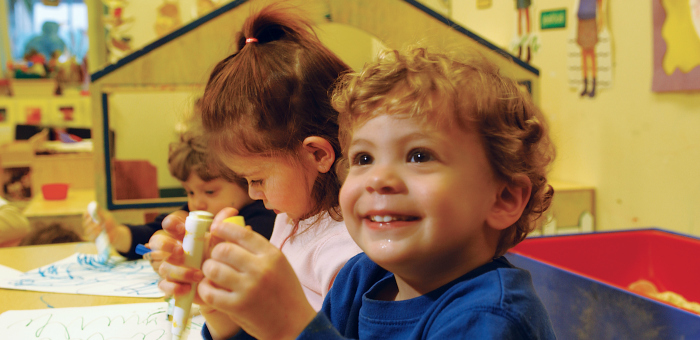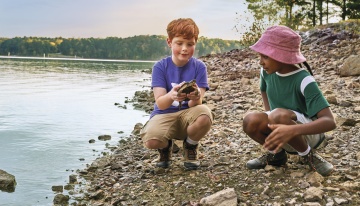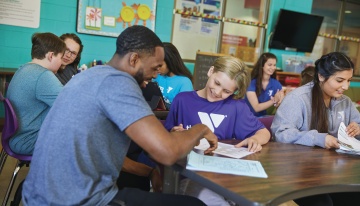Three Ways to Help Kids Prepare for Kindergarten
Entering kindergarten is often an equal mix of excitement and nerves—for both children and parents. For youth development professionals and parents, the summer between pre-K graduation and a new school environment is an optimal time to help children prepare for a smooth transition.

First, it’s important to understand that when kindergarteners start school, their day will feel a little different than what they are used to. While they will still spend plenty of time playing, exploring and being creative, they will also be gaining independence, sitting for periods of time and interacting with children in a different way.
How can parents and youth development professionals help set up children for kindergarten success?
- Work on basic fine motor skills.
Being still for an extended amount of time is asking a lot of young kids. Make sure they are comfortable holding a pencil, crayon or marker correctly with the thumb and forefinger supporting the tip. Help them practice writing their name using upper and lower-case letters, if possible. Remember that each child is unique and will progress at their own speed, so be patient and encouraging to help create excitement around learning.
- Help children become independent.
Kindergarten-age kids can do a lot, if given the opportunity. Most classrooms have one or two teachers and multiple kids, so it’s helpful if children can manage their own bathroom needs, dress themselves for recess, clean up after themselves and separate from parents easily. If possible, begin to practice these skills in a more relaxed environment.
- Understand the social structure that comes with kindergarten.
For children who were in an informal early childhood setting, it can sometimes be a struggle to adapt to the social expectations that come with a more structured environment. To help children become successful contributors in the classroom, encourage them to play independently or focus on one activity with a friend for up to ten minutes. Learning to follow directions and practice taking turns will also help young children build important skills.
If a child seems to be having a tough time grasping these skills, remember that their emotional and physical development is rapidly growing. Although this is an exciting time, it can leave them feeling exhausted. With patience, understanding and compassion, young learners will develop the values and skills needed to reach their full potential in school and life.




